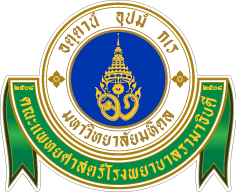Program Learning Outcomes (PLOs)
At the end of teaching according to the curriculum, graduates will have the following skills and knowledge:
- Applied ethics, professional ethics, professional law, and legislation related to nursing practice of gerontological nurse practitioner in various contexts both screening and primary medical care, acute care and long-term care in hospitals and communities
- Applied content of gerontological nursing science and nurse practitioner, related concepts and theories, and cultural sensitivity for use in management, outcome evaluation, and improve desirable outcomes for older persons and their family caregivers, taking into account cultural sensitivity
- Conduct research study related to the health promotion of the older adults in all phases of illness trajectory, including chronic, dependence, long-term, and end-of-life conditions to lead the quality health care for the older persons by integrating nursing science and related sciences, empirical evidence, cultural diversity, and moral ethics
- Perform leadership, management, and initiate or design the development of quality of care for the older persons as well as having communication skills and working as a team, collaboration with health care teams and related social networks for quality and safety management of the older persons and their families
- Applied digital technology and information, choose reliable information and analyze data for the health information management of older adult patient and family, risk management to improve service quality and communicate in continuing care coordination
- Perform nursing practice, health promotion, disease prevention, screening and referring, primary medical care of common health problems of older persons, emergency care as well as rehabilitation and caring for dependent older persons or with chronic illnesses to access the health care service system thoroughly end-of-life care by engaging family and their social networks and taking into account cultural differences
